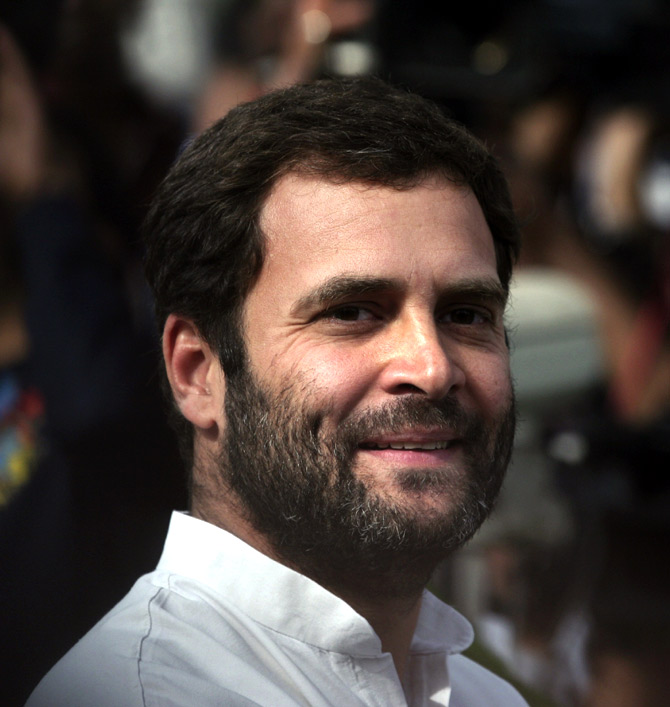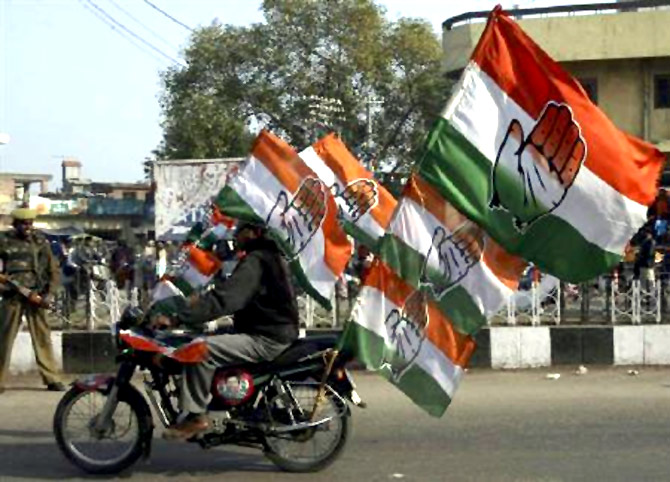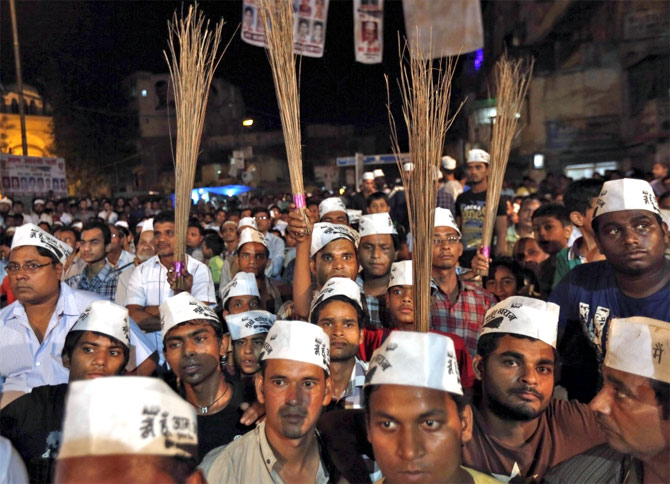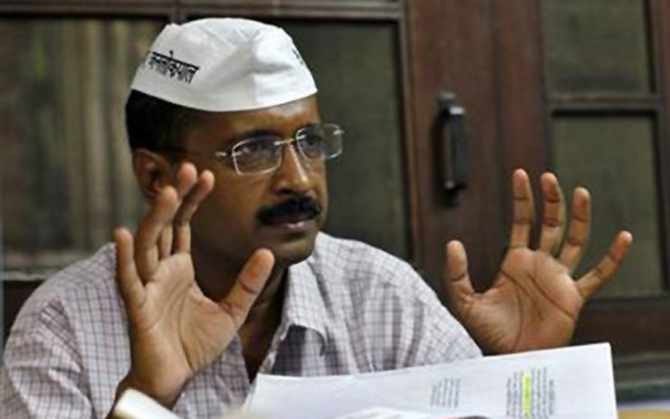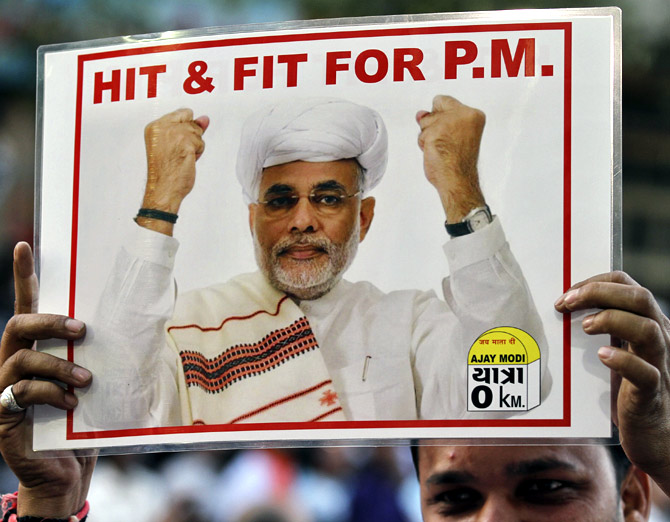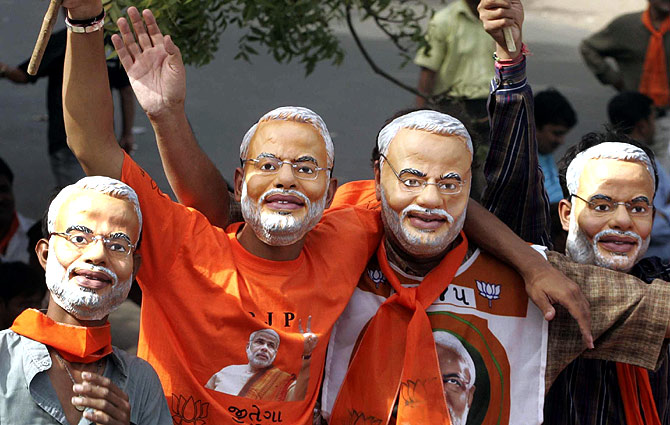 | « Back to article | Print this article |
Which political party will be the best for Indian economy?
The disconnect with the AAP is that its economic agenda sounds suspiciously like Indira Gandhi’s of the early 1970s: more subsidies, higher taxes, regulation of private school fees, free water, says T N Ninan.
Rahul Gandhi had two closed-door meetings shortly before the Assembly elections, one with businessmen and the other with bankers.
Judging from accounts of the meetings by those present – please read with caution because this is second-hand information – his interlocutors were surprised at the frankness with which he spoke about the “old Congress” and a “new Congress”; and about the differences and tussles between the three leading lights of the Manmohan Singh government (though No 2 out of the three had gone out of the frame).
Mr Gandhi spoke bluntly about crony capitalism, and the dangers of politicians being involved in business - naming names to make his point.
Click NEXT to read more…
Which political party will be the best for Indian economy?
He suggested that little had been achieved by business in the last decade which did not involve crony capitalism or policy arbitrage, that the present model of democracy was not working, and that there had to be a new kind of politics built from the bottom up.
Asked whether he would stress growth or distribution, he argued that growth had to happen but you would not get it without the even distribution of its benefits. Those listening to him got the impression that while Mr Gandhi pressed all the right buttons, what he talked about was beyond his capacity to deliver.
Click NEXT to read more…
Which political party will be the best for Indian economy?
TV viewers would have formed a similar impression after his subsequent comments, in the wake of the election results.
Mr Gandhi said that the Congress had the will to “transform” itself; that lessons had been learnt from the Aam Aadmi Party (AAP), and he and the Congress would do “better than anyone else” in involving the common man, in ways that you could not even “imagine”. Talk about under-delivery and then over-promise - setting the stage for further under-delivery.
As for the AAP, its dramatic success supports the thesis that societies that grow a sizeable middle class and a substantial urban population also start reforming their politics.
It has happened in many societies before, including the United States — which saw the robber baron phase of the last third of the 19th century succeeded by a “Progressive Era” of massive political and economic reform.
Click NEXT to read more…
Which political party will be the best for Indian economy?
The disconnect with the AAP is that its economic agenda sounds suspiciously like Indira Gandhi’s of the early 1970s: more subsidies, higher taxes, regulation of private school fees, free water, et al.
The popular author Gurcharan Das, in his book India Grows at Night, recounts how he told giant-killer Arvind Kejriwal that preventing corruption was better than curing it, and it could be done by reforming the institutions of governance, eradicating the licence raj and ending populist policies that created room for corruption.
It was not apparently what Mr Kejriwal wanted to hear, and Mr Das recalls how Mr Kejriwal had mounted a campaign to scuttle an experimental programme through which Chief Minister Sheila Dikshit hoped to provide 24x7 water to parts of the capital. So is Mr Kejriwal an unreformed socialist, and not an economic liberal?
Click NEXT to read more...
Which political party will be the best for Indian economy?
On a changed political map that offers three to choose from rather than two, the third option is the front-runner and a contrast.
Narendra Modi is nearly a generation (18-20 years) older and, though he has less formal education than the other two, he has more political and administrative experience - but is dogged by controversy about functioning outside the framework of law.
He has a centralised administrative style, while the talking points of the other two are decentralisation and grass-roots emancipation.
Click NEXT to read more...
Which political party will be the best for Indian economy?
Mr Modi’s economic promise is the “Gujarat model”, which seems to mean administrative efficiency, delivered through strong leadership.
Both would be a relief after years of ineffective government. He has also described himself as a Hindu nationalist when he could as easily have said Indian nationalist.
So there you have the field. In about five months, you will have to choose one.
